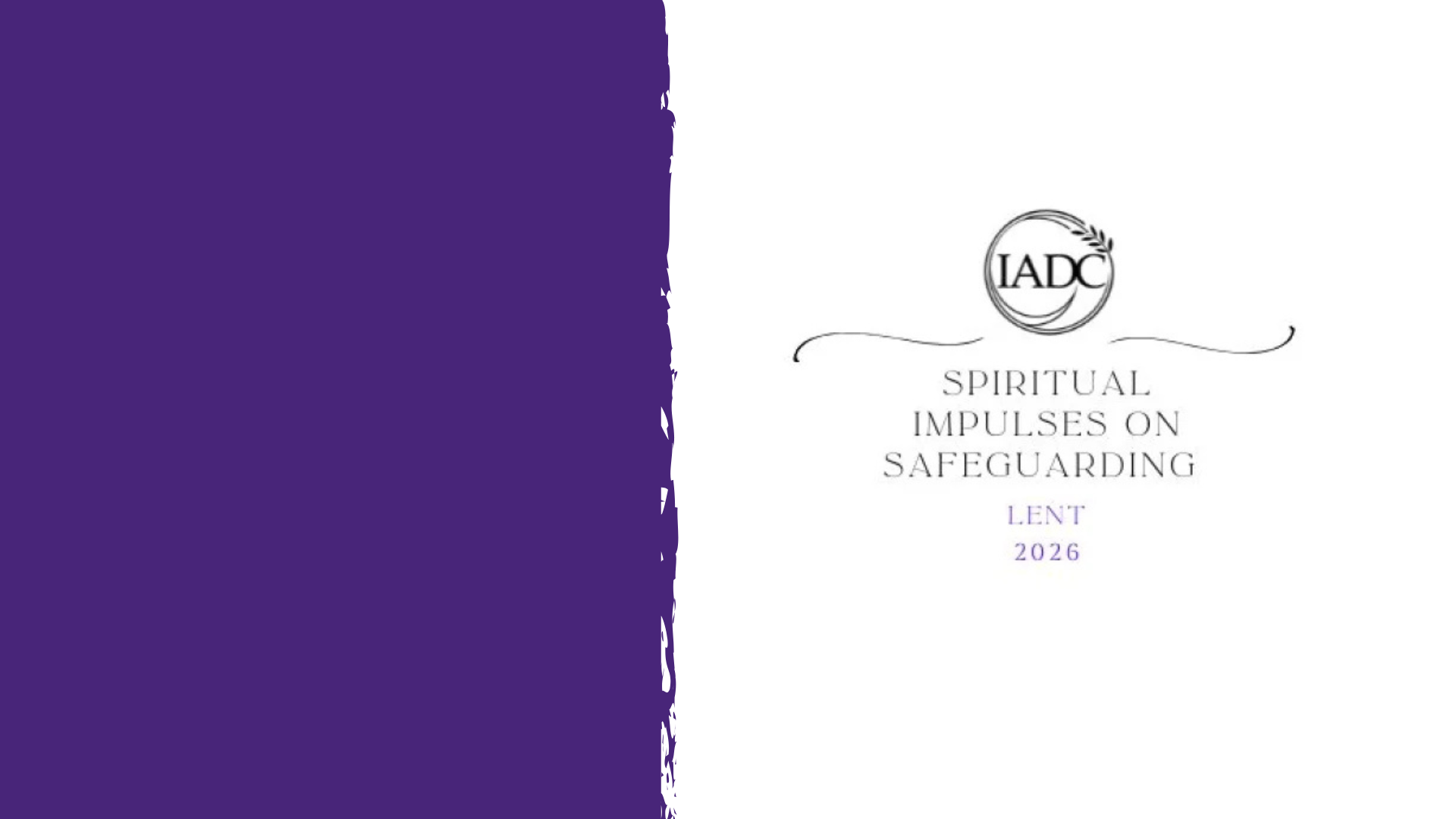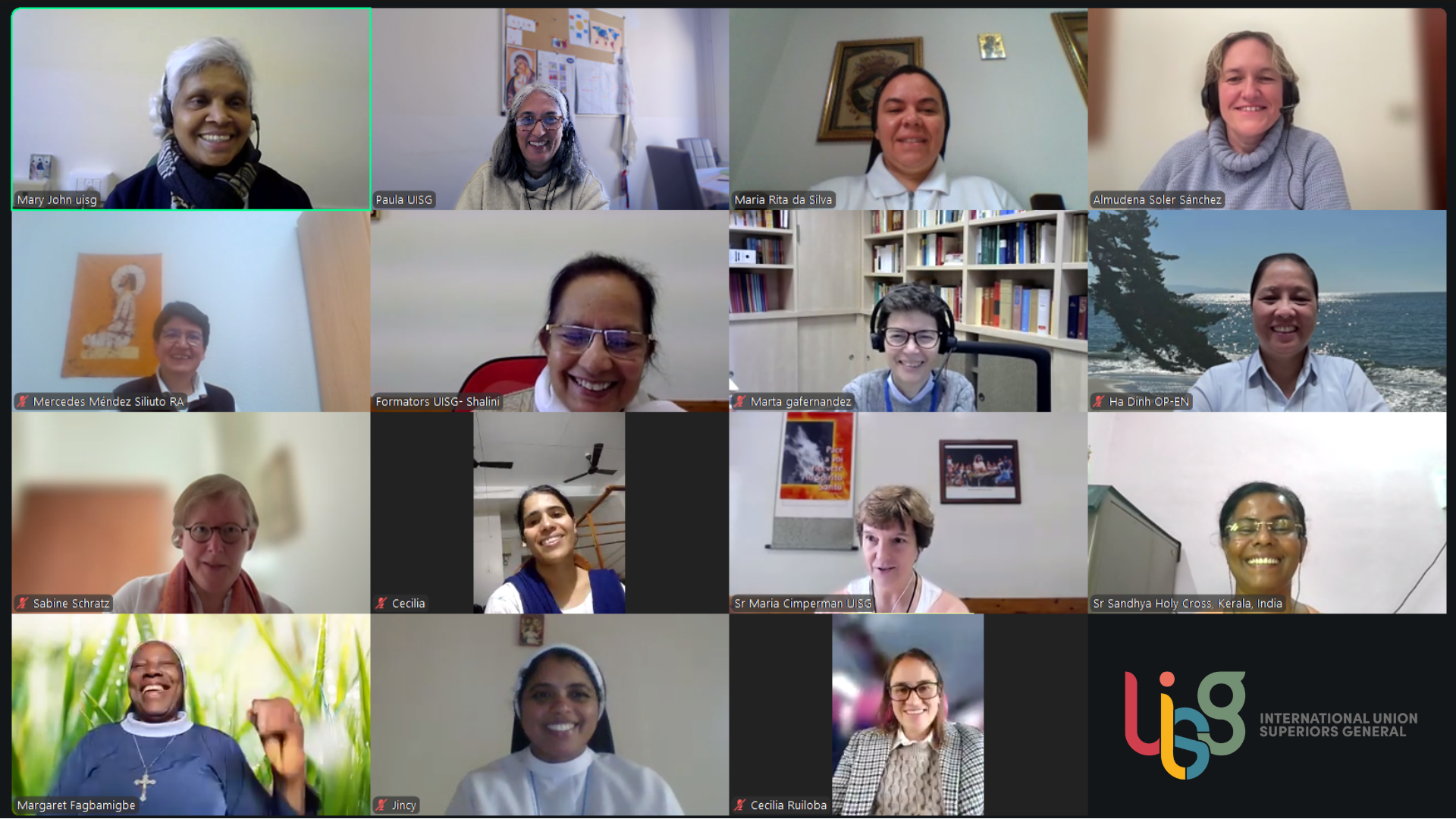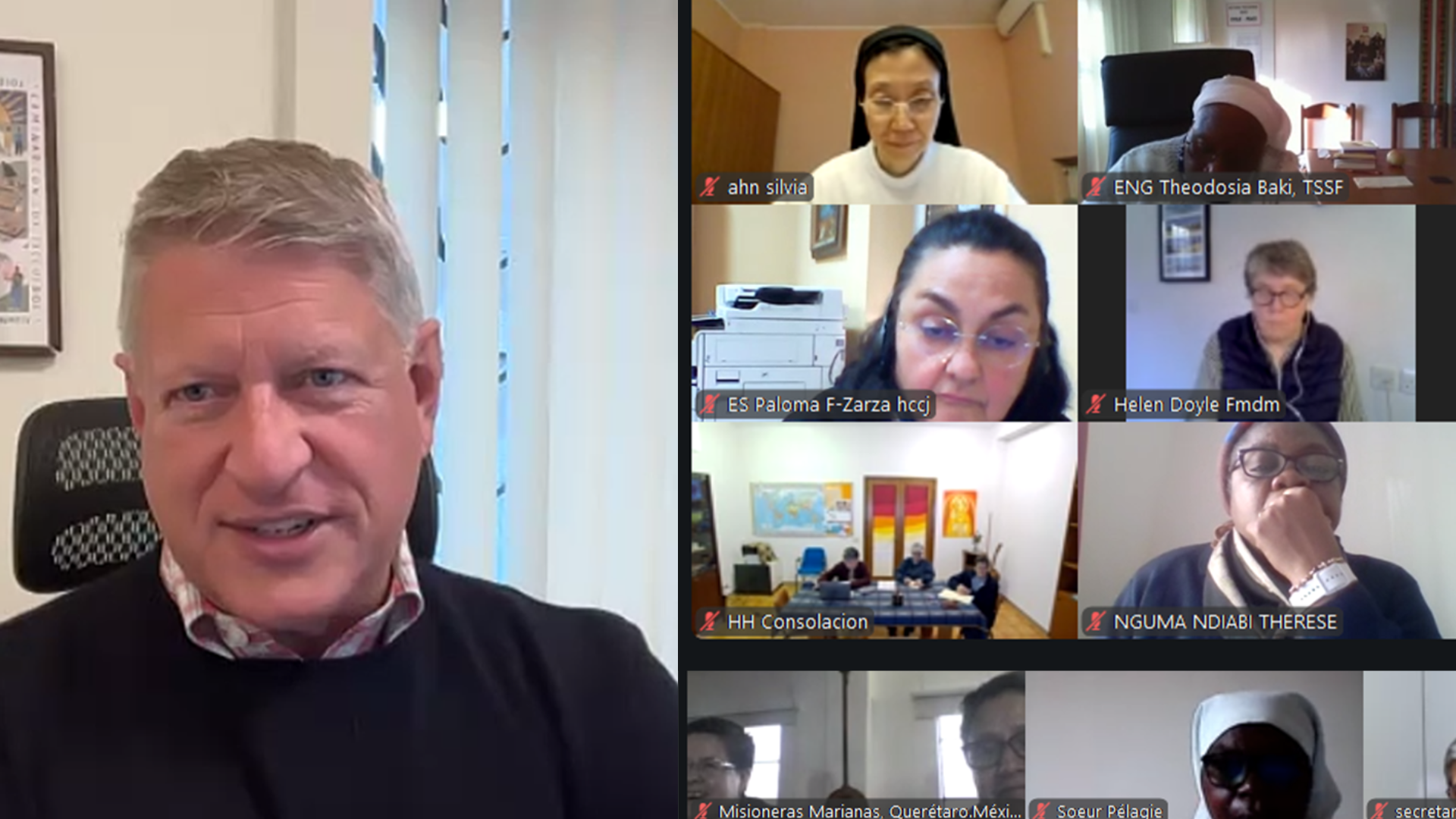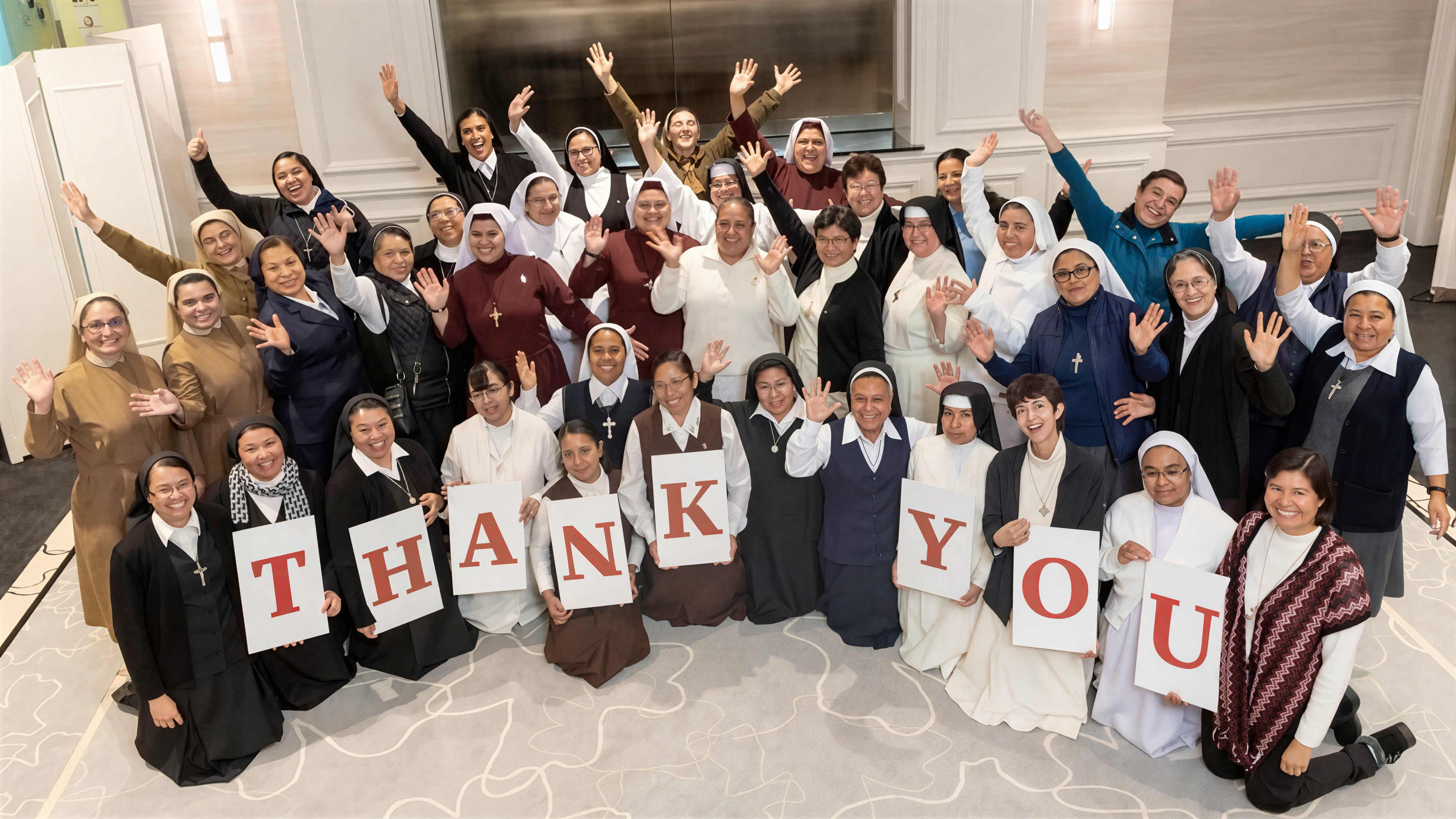
06/11/2025
Noticías
“You shall not take the name of God in vain”: Abuse of adult women and false mysticism
“You shall not take the name of the Lord your God in vain”: Abuse of Adult Women and False Mysticism
On November 3, more than 550 consecrated persons, priests, and lay people from around the world participated in a webinar organized by the UISG-USG Commission for Care and Protection. Sr. Maria Rosaura González Casas STJ offered a profound reflection on one of the most silenced realities within the Church: the abuse of adult women in ecclesial contexts, especially when it is cloaked in spirituality or presented as a “mystical experience.”
Starting with the Commandment: "You shall not take the name of the Lord your God in vain,” Sr. Maria proposed a spiritual, psychological, and cultural interpretation of the abuse committed when the name of God is invoked to justify immoral acts or to control another person’s conscience. “When faith is manipulated and the figure of God is used to subjugate or silence, grave spiritual harm is inflicted,” she affirmed, “because what is most sacred is perverted and the image of the God of the Gospel is distorted.”
Abuse of Power and Manipulated Spirituality
The speaker explained that at the root of all abuse—be it sexual, of conscience, or spiritual—lies an abuse of power, and that this becomes especially destructive when exercised in the name of God. This type of abuse, she pointed out, develops in contexts marked by asymmetries of authority, blind trust, and a lack of supervision, such as in spiritual accompaniment, confession, or formation programs.
Using concrete examples and references to well-known cases, Sr. Maria González Casas showed how so-called “false mysticism” can morally legitimize immoral behavior, leading victims to believe that an abusive relationship is a positive spiritual experience. “Convincing someone that an immoral act is good for their spiritual growth,” she said, “is one of the most serious forms of religious manipulation.”
A Wound in the Body of the Church
The psychologist and theologian noted that while child abuse has been recognized and firmly condemned, the abuse of adult women, especially religious, remains to be an open wound. She cited the pioneering work of Maura O’Donohue and Marie McDonald in the 1990s, as well as recent surveys in Latin America and the Caribbean, where more than 30% of women religious acknowledge having suffered or witnessed forms of spiritual or power abuse.
This reality points to a patriarchal and clerical culture, where the ministerial priesthood is associated with sacred power, reinforcing structural inequalities inside the Church and in society, Sr. Maria pointed out:
“When authority is considered as domination, and not as service, the Gospel is betrayed and the dignity of consecrated persons is wounded.”
The Ecclesial Challenge and Structural Conversion
Sr. Maria González Casas emphasized the need for a profound ecclesial reform that goes beyond simply creating new laws, but rather fosters a conversion in the way authority is exercised. Canon Law must explicitly protect the interior and spiritual freedom of individuals, as established by Canon 125 §1, which prohibits the superiors from inducing “the members to make a manifestation of conscience to themselves” or by Canon 630 §5, which states that “an act placed out of force inflicted on a person from without, which the person was not able to resist in any way, is considered as never to have taken place".
“As long as the Law does not recognize false mysticism and spiritual abuse as specific crimes, victims will remain unprotected,” she stated, recalling the proposals of canon lawyers who call for the criminalization of false mysticism, understood as the dishonest use of God’s name for illicit or immoral purposes.
Paths to Healing and Transformation
The reflection concluded with an invitation to all consecrated life to heal the relationships where authority and power are implied, and to cultivate a mature, free, and responsible spirituality. This implies a more holistic formation that fosters self-understanding, emotional maturity, and a personal relationship with the Living God, recognizable in daily life and human relationships, Sr. Maria said.
“Spiritual abuse can only be overcome through an authentic experience with God, not through blind obedience, but through the freedom that springs from love. Honoring God’s name means safeguarding his holiness in our words, decisions, and relationships.”
News relacionadas
 Outras Noticías
Quarta-Feira 11 Fevereiro 2026
Meditações gratuitas sobre safeguarding para a Quaresma
Ler
Outras Noticías
Quarta-Feira 11 Fevereiro 2026
Meditações gratuitas sobre safeguarding para a Quaresma
Ler
 Noticías
Terça-Feira 27 Janeiro 2026
Teólogas religiosas da UISG planeiam a juntas
Ler
Noticías
Terça-Feira 27 Janeiro 2026
Teólogas religiosas da UISG planeiam a juntas
Ler
 Noticías
Terça-Feira 23 Dezembro 2025
Liderança sinodal com raízes profundas: Responder ao Chamamento
Ler
Noticías
Terça-Feira 23 Dezembro 2025
Liderança sinodal com raízes profundas: Responder ao Chamamento
Ler
 Outras Noticías
Terça-Feira 02 Dezembro 2025
Webinar del Sisters' Project 2025: Le suore em África e na América Latina
Ler
Outras Noticías
Terça-Feira 02 Dezembro 2025
Webinar del Sisters' Project 2025: Le suore em África e na América Latina
Ler
Projectos e Comissões relacionados

Salvaguarda
Saber mais
12/11/2025
GABRIELA VALOT
Me parece my buena la formacion, pero cuando escuché el webinar ya la ponencia estaba comenzada, es decir que parece que se comenzó a grabar luego de comenzado. Muchas gracias